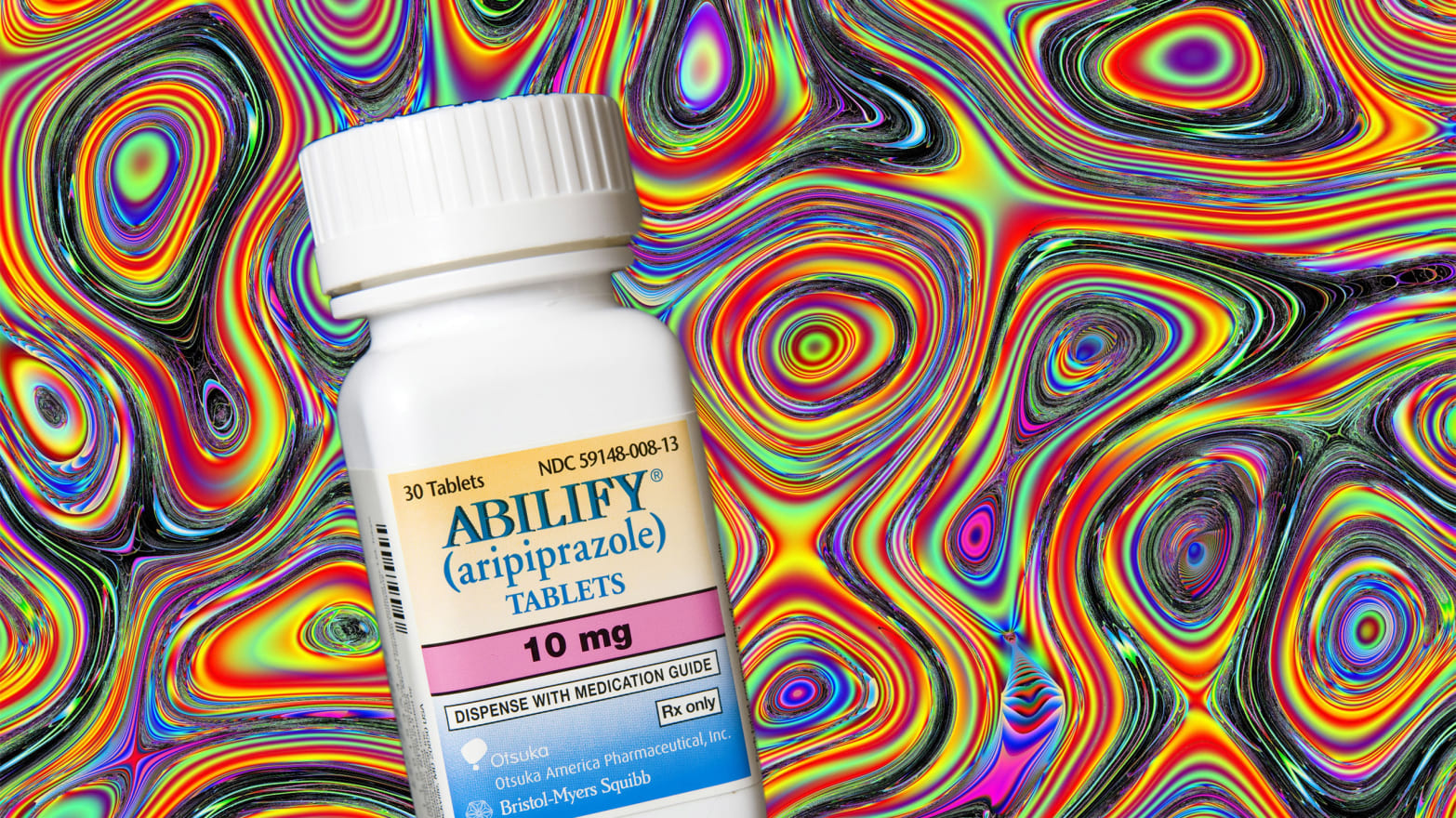Quick: what’s the top-selling drug in the United States?
Prozac? Viagra? Maybe something for heart disease?
Nope—Abilify, the powerful anti-psychotic medication that’s now widely used to treat depression. From April 2013, through March 2014, sales of Abilify (official name, aripriprazole) totaled $6,885,243,368—that’s right, almost $6.9 billion. That’s more than all other major anti-depressants combined.
And yet, the FDA says that the way Abilify works is “unknown.” Unknown! As in, we have no idea why this medication seems to help people with bipolar disorder. But go ahead and try it anyway, since it seems to work somehow.
Abilify’s makers, Otsuka America, say they know. As noted (and critiqued) in the medical journal PLOS Medicine, Abilify’s advertisements say that the drug works “like a thermostat to restore balance.”
A spokesperson for Otsuka denied that the advertising is at odds with the science. “Our promotional activities,” the company said, “focus on the description of the mechanism of action of aripiprazole as it is written in the USPI,” the standardized United States Product Insert.
But what the USPI says is that “The mechanism of action of aripiprazole… is unknown. However, it has been proposed that the efficacy of aripiprazole is mediated through a combination of partial agonist activity at D2 and 5-HT1A receptors and antagonist activity at 5-HT2A receptors.” In other words, there’s a “proposed” theory, but no evidence to establish it.
Then again, I suppose most people don’t know how their thermostats work either.
Interestingly, the PLOS Medicine article noted, Otsuka makes the same claim for schizophrenia as it does for bipolar disorder. Which is a telling point. Abilify is actually a powerful anti-psychotic given to people with severe mental illness. While Abilify’s advertising depicts it as a kind of supplement to anti-depressants, with sad women giving it a try when mother’s little helper no longer seems to help, Abilify actually is like a bazooka to conventional anti-depressants’ revolver. Critics such as Britain’s Joanna Moncrieff have argued that anti-psychotics don’t treat anything at all; they just zone people out so they don’t notice much. They’re effective in the short term, but essentially, that’s because they are really just powerful tranquilizers.
This makes sense for their primary use: anti-psychotics like aripiprazole are administered to seriously ill people like schizophrenics. Abilify is a close cousin of Thorazine. Yet, now it’s the most profitable drug in America.
In fact, the present trend has been going on for some time. Two years ago, Dr. Richard Friedman wrote in The New York Times about the disturbing rise in the prescription of anti-psychotics for routine complaints like insomnia. Since then, Abilify has risen from the fifth-most-prescribed drug to the top of the heap.
Now, it’s easy to trash the science of psychopharmacology, which is why so many people have done it, in books like Irving Kirsch’s The Emperor’s New Drugs, Rob Whitaker’s Mad in America, and Daniel Carlat’s Unhinged.
These critics have their points. Kirsch shows how the power of suggestion plays as much of a role in anti-depressants’ success as the drugs themselves. Whitaker shows how some pharmaceutical companies have cooked the books to make the drugs seem more effective than they are. And Carlat, speaking as a psychiatrist, bemoans the shift from trying to understand the mind to prescribing meds that seem to help for inexplicable reasons.
Probably, though, those of us who have personal experience with depression have arrived at more subtle conclusions—neither the cheerleading of the drug companies nor the jeremiads of their critics, but something approaching the ambivalence of Andrew Solomon’s magisterial 2000 book The Noonday Demon, which explored how pharmaceuticals can help, but not always, and not as often as they’re prescribed.
Abilify, though, might give pause even to moderates. There’s not even an accepted theory here, as there is with SSRI’s (which prevent the reuptake of serotonin, thus enabling higher serotonin levels in the brain), to explain why the drug works. And this is extremely powerful medicine, being prescribed at an astonishingly high rate.
To be sure, there are clinical trials showing that aripiprazole does indeed seem to work better than placebos—Otsuka referred The Daily Beast to two six-week studies of people with major depressive disorder—but no explanation of why it does. And of course, there are the usual array of side effects. Most of these are routine (risks of seizures, strokes, and so on), but some have claimed (though this is disputed) that anti-psychotics can cause a kind of withdrawal, once you go off them. There are reported cases—though, again, not fully understood—of non-psychotic people going on anti-psychotic drugs, and then experiencing psychotic symptoms after they stop.
That would certainly make for an interesting voice-over warning: “Note, this medicine may cause psychosis, hallucinations, or the inability to distinguish between fantasy and reality.” Presumably, while our formerly sad animated heroine picks daisies in her garden (and it is almost always hers, not his).
Finally, as with other medications, the looming question is that of globalization. A dense tome by Carl Walker, Depression and Globalization makes a detailed, evidence-based argument that, actually, in an age of globalization, most of us have good reasons to be sad. And Ethan Watters’ Crazy Like Us documents the ways in which America is exporting its conceptions of mental health—and creating billions of newly “sick” people to treat.
In other words, the US is just the test market.
And yet, when it comes to schizophrenia, a remarkable (and again controversial) study conducted by the World Health Organization in 1987 showed that diagnosed schizophrenics had better long-term outcomes in developing world countries where anti-psychotics were not available than those in developed countries where they were. These findings, too, are disputed, but in 27 years of subsequent research, no one has disproven them either. Is it better not to take these drugs at all?
This level of uncertainty is not unusual in scientific communities. Despite the vague cultural notion of science as providing The Answers, most of those answers have asterisks next to them, and most generate further questions, especially in contexts as complex as the human brain.
But the notion that Abilify is simply a thermostat that you adjust up or down—I’m feeling a little blue today, I think I’ll kick it up a notch—is surely hard to justify. I’d wager most users aren’t even aware that it’s an anti-psychotic drug that’s used to treat schizophrenia. I wonder if they’d be paying $6.9 billion for it if they did.

